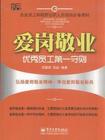CEREMONIAL MAGIC IN THEORY AND PRACTICE
THE word "magic," if one may be permitted to say so, is itself almost magical--magical in its power to conjure up visions in the human mind.
For some these are of bloody rites, pacts with the powers of darkness, and the lascivious orgies of the Saturnalia or Witches' Sabbath; in other minds it has pleasanter associations, serving to transport them from the world of fact to the fairyland of fancy, where the purse of FORTUNATUS, the lamp and ring of ALADDIN, fairies, gnomes, jinn, and innumerable other strange beings flit across the scene in a marvellous kaleidoscope of ever-changing wonders.
To the study of the magical beliefs of the past cannot be denied the interest and fascination which the marvellous and wonderful ever has for so many minds, many of whom, perhaps, cannot resist the temptation of thinking that there may be some element of truth in these wonderful stories. But the study has a greater claim to our attention; for, as I have intimated already, magic represents a phase in the development of human thought, and the magic of the past was the womb from which sprang the science of the present, unlike its parent though it be.
What then is magic? According to the dictionary definition--and this will serve us for the present--it is the (pretended) art of producing marvellous results by the aid of spiritual beings or arcane spiritual forces. Magic, therefore, is the practical complement of animism. Wherever man has really believed in the existence of a spiritual world, there do we find attempts to enter into communication with that world's inhabitants and to utilise its forces.
Professor LEUBA[1] and others distinguish between propitiative behaviour towards the beings of the spiritual world, as marking the religious attitude, and coercive behaviour towards these beings as characteristic of the magical attitude; but one form of behaviour merges by insensible degrees into the other, and the distinction (though a useful one) may, for our present purpose, be neglected.
[1] JAMES H. LEUBA: _The Psychological Origin and the Nature of Religion_(1909), chap. ii.
Animism, "the Conception of Spirit everywhere " as Mr EDWARD CLODD[2] neatly calls it, and perhaps man's earliest view of natural phenomena, persisted in a modified form, as Ihave pointed out in "Some Characteristics of Mediaeval Thought,"throughout the Middle Ages. A belief in magic persisted likewise.
In the writings of the Greek philosophers of the Neo-Platonic school, in that curious body of esoteric Jewish lore known as the Kabala, and in the works of later occult philosophers such as AGRIPPAand PARACELSUS, we find magic, or rather the theory upon which magic as an art was based, presented in its most philosophical form.
If there is anything of value for modern thought in the theory of magic, here is it to be found; and it is, I think, indeed to be found, absurd and fantastic though the practices based upon this philosophy, or which this philosophy was thought to substantiate, most certainly are.
I shall here endeavour to give a sketch of certain of the outstanding doctrines of magical philosophy, some details concerning the art of magic, more especially as practiced in the Middle Ages in Europe, and, finally, an attempt to extract from the former what I consider to be of real worth. We have already wandered down many of the byways of magical belief, and, indeed, the word "magic" may be made to cover almost every superstition of the past:
To what we have already gained on previous excursions the present, I hope, will add what we need in order to take a synthetic view of the whole subject.
[2] EDWARD CLODD: _Animism the Seed of Religion_ (1905), p. 26.
In the first place, something must be said concerning what is called the Doctrine of Emanations, a theory of prime importance in Neo-Platonic and Kabalistic ontology.
According to this theory, everything in the universe owes its existence and virtue to an emanation from God, which divine emanation is supposed to descend, step by step (so to speak), through the hierarchies of angels and the stars, down to the things of earth, that which is nearer to the Source containing more of the divine nature than that which is relatively distant. As CORNELIUS AGRIPPA expresses it:
"For God, in the first place is the end and beginning of all Virtues;he gives the seal of the _Ideas_ to his servants, the Intelligences;who as faithful officers, sign all things intrusted to them with an Ideal Virtue; the Heavens and Stars, as instruments, disposing the matter in the mean while for the receiving of those forms which reside in Divine Majesty (as saith Plato in Timeus) and to be conveyed by Stars; and the Giver of Forms distributes them by the ministry of his Intelligences, which he hath set as Rulers and Controllers over his Works, to whom such a power is intrusted to things committed to them that so all Virtues of Stones, Herbs, Metals, and all other things may come from the Intelligences, the Governors. The Form, therefore, and Virtue of things comes first from the _Ideas_, then from the ruling and governing Intelligences, then from the aspects of the Heavens disposing, and lastly from the tempers of the Elements disposed, answering the influences of the Heavens, by which the Elements themselves are ordered, or disposed.
These kinds of operations, therefore, are performed in these inferior things by express forms, and in the Heavens by disposing virtues, in Intelligences by mediating rules, in the Original Cause by _Ideas_ and exemplary forms, all which must of necessity agree in the execution of the effect and virtue of every thing.















